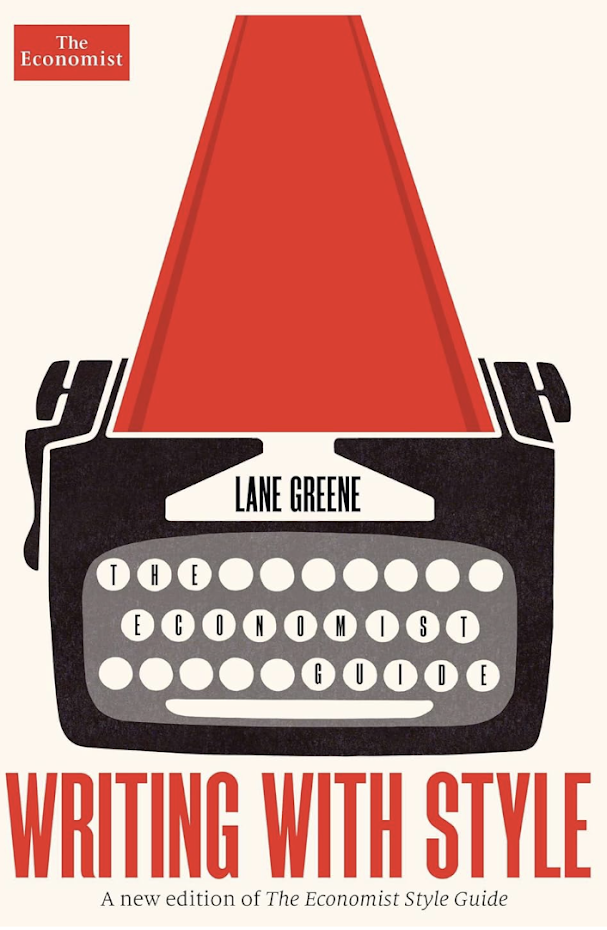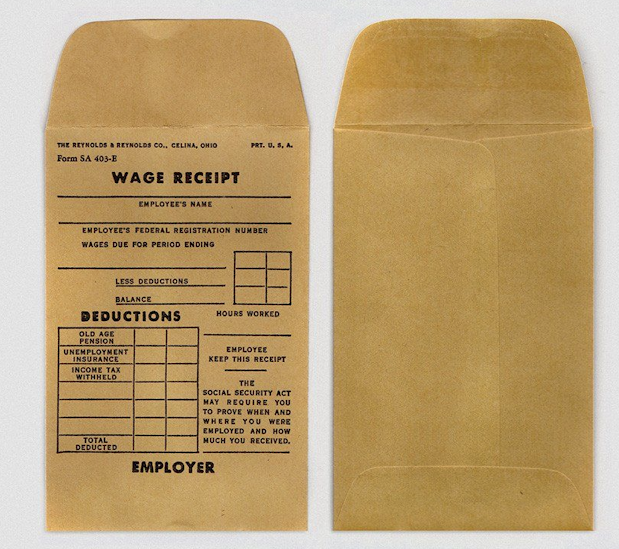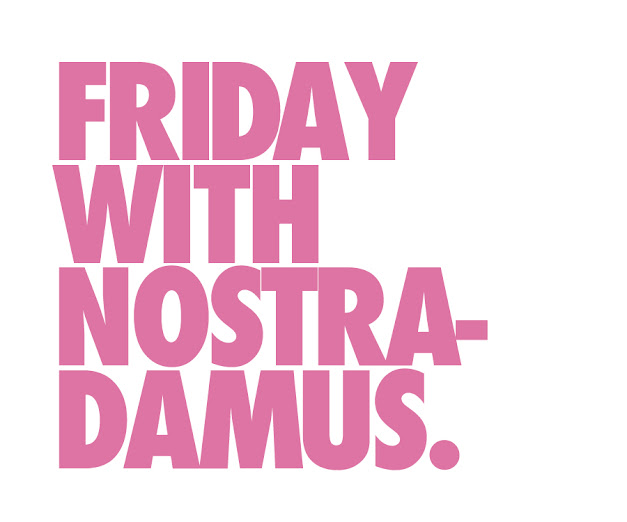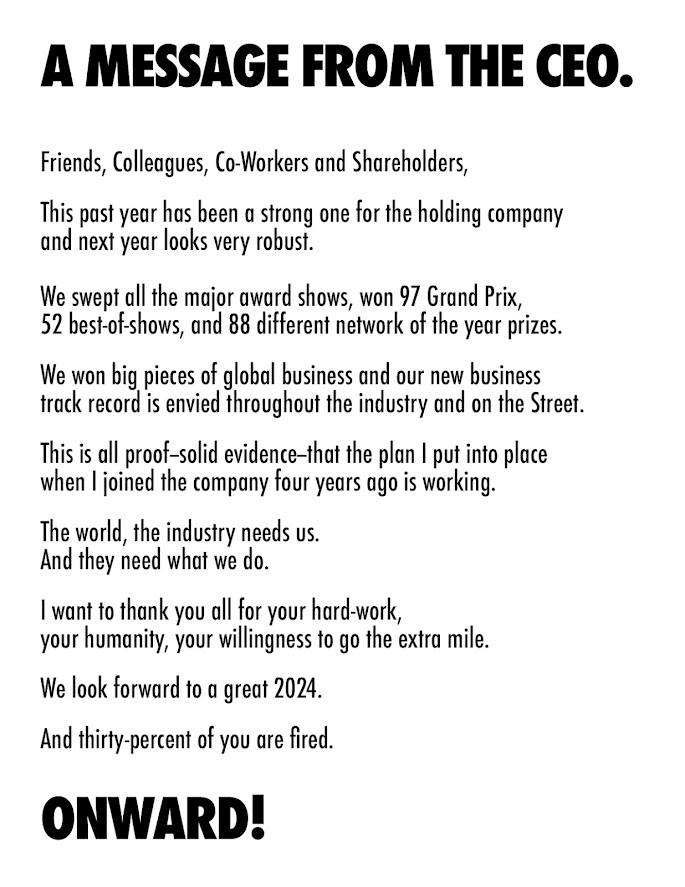For some years now, I've used a tagline to promote my agency and my services. It's simple. And it's something I believe in. That makes it better than about 99.979-percent of all other taglines out there. Things like, "We know how to luggage." Or "This is how you sunglass." Or "Buick. The SUV built around you."
My line is: "Good writing is a business advantage." And it's based on something I've followed since I picked up, in the early 1980s, the Style Guide of the Economist Magazine. That guide begins with this simple sentence: "Clarity of writing usually follows clarity of thought." Yeah, that's right. Clarity, too, is a business advantage.
In any event at the beginning of October, the very same Economist started advertising to its subscribers a podcast called "Well Red. Inside Language and Style at The Economist."
Though I rarely listen to podcasts (I seldom have the time. And I prefer to read.) I found an hour to take in this one, and I'm glad I did. I've pasted it above. And hopefully, it won't be so severely paywalled that you're shit out of luck. If you can't see the podcast, you can download one of their style guides here, for free. At the very least it will impress the other ones and zeroes on your hard-drive. No mean feat.
I won't go into a of details about the podcast. But one bit in particular impressed me. It gave me information in a way I hadn't heard before. So, I've gone back to it a few times and I call it to your attention here.
At 1:30 in the video above, Lane Greene, a language correspondent for the magazine says:
I start with words. We like to use the old, short words of the English language. Winston Churchill once said that short words are best and old words when short are best of all. That means the concrete, the simple. If you're interested in language history, the words that go back to the Anglo-Saxon period of the English language constitute the real bedrock of the language. Ideally, those words should be concrete things. Things that you can stub your toe on....
The next thing would be phrasing, when you put words together. When you put words together, you should by all means use metaphors and images and figures of speech but try not to use worn-out, exhausted metaphors, cliches and images that you're used to seeing in print. Try to come up with fresh imagery that will arrest a reader and make them pay attention.
The third thing is sentences. Our sentences should be active and they should be short. They should have a named visual or visualizable reference right at the heart of the sentence. And they should be doing something with a verb that's nice and vivid and clear so people can see it in their mind's eye. Syntax, wherever possible, should be short and simple. Hit that full-stop button as often as you can...and you'll make life a lot easier for your readers.
When I was a boy in the business there were literally scores of awards annuals on sale for half price down at the Strand bookstore on 12th and Broadway. For a time in the late 80s, I could walk down there, browse, get some Chinese food and be back in my office in under an hour. As an industry we lost a lot when we decided to eliminate agency libraries and relocate to the prairies of Manhattan where there are neither museums or bookstores. Or people.
I had no disposable income during those early days of my career but I was sure I wanted disposable income in my later days. So I saved up my lunch money and bought every annual I could find. Eventually, my collection was wider and deeper than that of the One Club. It still is.
I read every ad in those books. Ten times. Even if the ads they reproduced were so small that the body copy was just six point,
I found a way like an old scrivener squinting over the books.
Of course, I read every VW ad by DDB. Every ad Ed McCabe wrote. And Jim Durfee. And Curvin O'Reilly. And Steve Hayden. And probably one hundred more. Non ad people too, like Flannery O'Conner, Joseph Mitchell, A.J. Liebling, Robert Caro and the great writers of the Times.
I read and I wrote.
I'm two-million words in to writing this blog and I am still learning and still practicing every day. That's the reason why behind this space. The reason why behind my every-day-ness.
There's no easy way to do any of this.
There's no short course to self-expression. Or clarity.
Once in a while, I read a poem my best friend Fred shared with me when we were just high school juniors. Just 15 or so. It's by Langston Hughes, a poet who means a lot to me, who I return to often.
It's as terse as a sock in the jaw. Yet it says a helluva lot. It's good. I keep learning from it. As you do from things that are good, no matter how often you revisit them.
Impasse











































